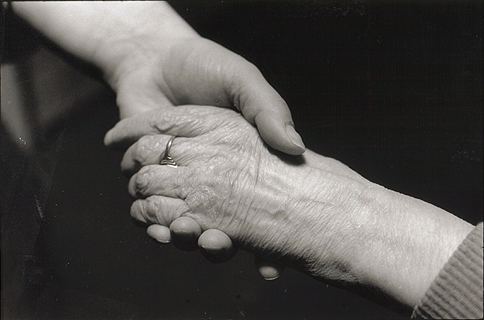More than Memory Loss: Emotions, Connection and Love Remain

 The Twin Cities Jewish Community Alzheimer’s Task Force is presenting a half-day conference that will provide education and support for caregivers and those supporting a loved one with dementia. The event, “Keeping the Spirit Alive,” will be held on Sunday, April 30, from 8 a.m. to 1:45 p.m. at Adath Jeshurun Synagogue in Minnetonka. It is free and open to the public. You may register beginning March 1, 2017 online at www.jfssp.org/keepingthespirit or by calling Jewish Family Service of St. Paul (JFS) at 651-698-0767.
The Twin Cities Jewish Community Alzheimer’s Task Force is presenting a half-day conference that will provide education and support for caregivers and those supporting a loved one with dementia. The event, “Keeping the Spirit Alive,” will be held on Sunday, April 30, from 8 a.m. to 1:45 p.m. at Adath Jeshurun Synagogue in Minnetonka. It is free and open to the public. You may register beginning March 1, 2017 online at www.jfssp.org/keepingthespirit or by calling Jewish Family Service of St. Paul (JFS) at 651-698-0767.
By Renee Segal
When I told people that my mom had Alzheimer’s, I always braced myself for the dreaded question, “Does she remember who you are?”
I didn’t like that question, because I didn’t know how to answer it. I would usually say something like, “I don’t give her the chance not to know me, because I tell her who I am right away, every time I see her.” Don’t worry if you are one of those that asked me; before I was familiar with this disease, I asked the same question.
One day I introduced myself to the person leading songs in my mother’s memory care facility. She proceeded to ask Mom her birthdate, my age and other details. I jumped in and answered them to spare Mom the embarrassment of not remembering. Even with memory loss, people deserve their dignity.
There are many stages of the disease, which progresses at a different pace for everyone. At a neurology appointment with Mom, I was disturbed to learn that modern medicine can provide no prognosis about progression, severity or timing for an individual.
Initially, everyone interacting with the newly-diagnosed person experiences frustration at the odd and sometimes even bizarre behaviors. These behaviors range from the annoyingly endless repeating of questions, to wandering, to seeming belligerence, and eventually to anxiety and panic as the patient goes through the phase of understanding the losses they are experiencing. It is important to remember people with Alzheimer’s are doing their best to cope.
Alzheimer’s or not, warm and strong connections are still possible. Family and friends need to pay closer attention, because interactions become more nuanced.
For example, one day I came to visit my mom from work and dressed in work clothes. Normally, I visited her after I exercised, usually looking quite a mess. That particular day, she exclaimed how beautiful I was and how proud she was of me. Mom had told me I was beautiful and that she was proud of my accomplishments many times, but her expression, with words and clear intention, was so unfiltered and pure. I was almost embarrassed. I learned that day a person with Alzheimer’s is direct and true to their being.
Another time, she was lying in bed. During that phase, I liked to visit with her while she was lying down, because she was less distracted and more relaxed. I had had a particularly stressful week. When she asked how I was, I told her I was stressed, and she proceeded to tell me that she worried I was pushing myself too much. She had never told me that before. My dad said, “She was always in her mother role,” even at that stage of the disease. Someone with Alzheimer’s doesn’t forget their roles and connections. Those parts remain even if their ability to express them fades with time.
I remember a later moment when my daughter visited her. Mom smiled and stared at her, unable to talk by this time, yet joyfully grabbing Leah’s hands and holding them tightly. When my son would visit, you could feel her joy and love for him. She was tearful to see him and smiled through tears of joy.
Certain memories may be gone, but for someone with Alzheimer’s, emotions remain. What is left, then, for us? Feelings. Touch. And love. A love perhaps more profound and deeper than any of us could use our words to express.
So, did she remember me? I didn’t always know, but I do know with great certainty that she loved me. Right up to the end. And I loved her—who she was to me in all parts of her life—and I love her now. And that is all that matters!
